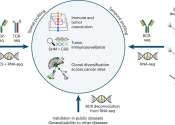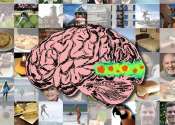Improved human brain organoids to boost neurological disease research
Scientists at Harvard University and the Broad Institute's Stanley Center for Psychiatric Research have made a major advance in the development of human brain 'organoids': miniature, 3-D tissue cultures that model a patient's ...
Jun 5, 2019
0
206









